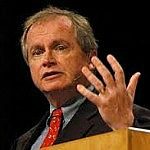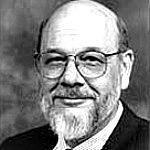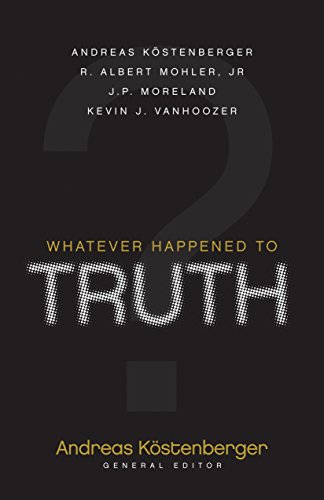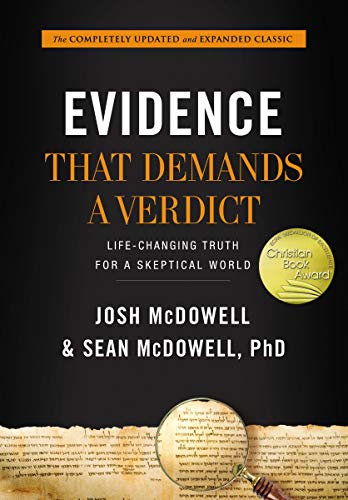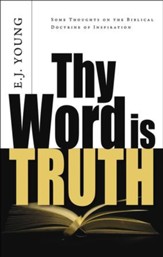Quotes about Honesty
A lie consists in speaking a falsehood with the intention of deceiving.
One little lie leads to another, and pretty soon you’re telling whoppers. To soothe your sense of guilt, you lie to yourself too. Maybe you tell yourself you’re not really lying but just “repackaging the facts.” Maybe you take up the motto “You can’t make an omelet without breaking a few eggs.” Maybe you repeat false philosophies you’ve heard in the classroom, like “Acts must be judged by their consequences.” Or maybe you just make excuses: “I know the end doesn’t usually justify the means, but my case is special.” Before long you’ve told so many lies that you can’t even remember the truth. Worse yet, people who forget the truth usually go on the forget the Truth – and I think you know Who I mean!
Copied from How to Stay Christian in College by J. Budziszewski copyright 2004, p.114. Used by permission of NavPress (Think Books) – www.navpress.com. All rights reserved. Get this book!
Christians claim to have the truth, and to follow Him who is the Truth (John 14:6). In our conversations, therefore, truth must be our watchword. How many of us stoop to telling stories with a reprehensible slant, either to make our point more emphatically or to present ourselves in a mere glamorous light than the raw facts will allow? How many of us say we will do things and instead renege on these responsibilities because it is personally inconvenient to go through with them? You who with me are teachers and preachers – how often do we fudge the evidence to make a point, or dogmatize in areas where we know nothing, in the hope that dogma will mask our ignorance? I am not speaking of the honest mistake, but of deceit.
The Sermon on the Mount, Baker, 1978, p. 48. Get this book!
“Exaggeration” is actually a proud, unbroken word for “lying.”
Brokenness, The Heart God Revives, Moody Publishers, Chicago, 2002, p. 139. Get this book!
Honesty may not always be the best policy, as a policy, but dishonesty is always a miserable policy, even when it succeeds.
Living in the Grip of Relentless Grace, P&R Publishing, 2002, p. 65. Used by Permission.
Examples where honesty should be employed by Christians:
1. When completing income tax forms.
2. When selling an automobile.
3. When you are given too much change.
4. When you are told a rumor.
5. When you break something.
6. When you owe people money.
7. When someone calls and you do not want to talk to them.
8. When you are reminiscing and telling a story.
9. When you tell someone how much you paid for something.
10. When you are asked for your opinion or advice.
11. When you fill out a credit application.
12. When you give character references.
Excerpted from: Honesty, Study Outlines, 1999, www.christinyou.net. Used by Permission.
Today there is an urgent truth shortage! There was a time when western culture was distinguished from other cultures by at least a conventional outward sense of obligation to tell the truth. But now there is a pervasive indifference to truth-telling, and this has not only infected day-to-day conversation but the most solemn pledges of life. Perjury under solemn oath is epidemic. The sacred vows of marriage are broken almost as often as repeated. God’s name is invoked by blatant liars who purport to be witnesses to the truth.
We must remember that for Jesus words are sacramental – an outward sign of an inward condition. Jesus said, “For out of the overflow of the heart the mouth speaks” (Matthew 12:34; cf Mark 7:14-23). A continually truthful spirit will produce an increasing veracity of speech.
Taken from James by Kent Hughes, copyright 1991, Crossway Books, a division of Good News Publishers, Wheaton Illinois 60187, p. 251, www.crosswaybooks.org.
It is more from carelessness about truth than from intentional lying that there is so much falsehood in the world.
A lie is a snowball; the further you roll it, the bigger it becomes.
Truth has no degrees or shades. A half truth is a whole lie, and a white lie is really black.
Individually men are inclined to tell the truth only when it benefits them.
In their consciences men know that truth is right and essential. That is the one reason they go to such lengths to make what they say appear to be truthful. Our problem is in being truthful.
Satan is the prince of this world, and since he not only is a liar himself but also "the father of lies" (John 8:44), it should not be surprising that the system he heads is characterized by lying… Our whole society is largely built on a network of fabrication, of manufactured “truth.” We shade truth, we cheat, we exaggerate, we misrepresent income tax deductions, we make promises we have no intention of keeping, we make up excuses, and betray confidences – all as a matter of normal, everyday living.
Our truthfulness should be so consistent and dependable that we need no oath to support it: a simple “yes” or “no” should suffice [Mt. 5:34-37; Jas. 5:12].
We cannot deceive God. Twice in the Acts God is called “the Heartknower” (Acts 1:24; 15:8). But we can deceive ourselves. Here are four differences between deceit and honesty in our hearts. One, a deceitful heart doesn’t know its sin because it doesn’t want to know. But an honest heart is saying, “Bring it on.” Two, a deceitful heart notices how well a sermon applies to someone else. But an honest heart is too concerned about itself to judge another. Three, a deceitful heart, when it isn’t growing, blames its inertia on hardship or its church or even on God himself. But an honest heart says, “It’s my fault. I need to get in gear.” Four, a deceitful heart delays response. It says, “I’ll get around to it, even soon. But I can’t right now.” An honest heart puts God first. Delayed obedience is a way of saying, “I’m setting the terms. I am Lord.” But an honest heart says, “Lord, whatever you want – right now.” An honest heart says, with the old hymn, “The dearest idol I have known, whate’er that idol be, help me to tear it from Thy throne and worship only Thee.”
Lying is stating something, either written, oral, or with other signals, with the intent to mislead (Scott Turansky and Joanne Miller).
Good and Angry: Exchanging Frustration for Anger in You and Your Kids, National Center for Biblical Parenting, 76 Hopatcong Drive, Lawrenceville, NJ 08648, www.biblicalparenting.org, 1-800.771.8334, email [email protected].
Think about how much falsehood and deceit there is in the world! How much exaggeration! How many untruths are added to a simple story! How many things are left out, if it does not serve the speaker’s interest to tell them! How few there are around us of whom we can say, that we trust their word without question!
If you are of the truth, if you have learned the truth, if you see the sanctity of the truth, then speak truth. We are not called to be deceivers or liars. God is a God of truth, and His people are called to have an enormously high standard of truth.
The Purpose of God, An Exposition of Ephesians, Christian Focus Publications, 1994, p. 114.
Saints not only desire to love and speak truth with their lips, but they seek to be true within; they will not lie even in the closet of their hearts, for God is there to listen; they scorn double meanings, evasions, equivocations, white lies, flatteries, and deceptions.
He who tells little lies, will soon think nothing of great ones, for the principle is the same.
One will never know if what motivates us is moral conviction or moral convenience until we are forced to suffer loss for standing our ground or keeping our word.
Copied from: Pleasures Evermore: The Life-Changing Power of Knowing God by Sam Storms, © 2000, p. 241. Used by permission of NavPress – www.navpress.org. All rights reserved. Get this book!
Do not tell people you will pray for them and then fail to do it. That is hypocritical love. Genuine love takes the promises of prayer to heart and follows through in keeping those promises.
Leading With Love, Lewis and Roth, 2006, p. 122, Used by Permission. Get this book!
Whenever I utter the formula “I swear by God,” I am really saying, “Now I’m going to mark off an area of absolute truth and put walls around it to cut it off from the muddy floods of untruthfulness and irresponsibility that ordinarily overruns my speech.” In fact, I am saying even more than this. I am saying that people are expecting me to lie from the start. And just because they are counting on my lying I have to bring up these big guns of oaths and words of honor.
Christians don’t tell lies they just go to church and sing them.
[Lying is] any deceit: In word, act, attitude – or silence; in deliberate exaggerations, in distortions of the truth, or in creating false impressions.
As quoted in Character of the Christian, book 4 of the Studies in Christian Living series, NavPress, 1964, p. 26. Used by permission of NavPress – www.navpress.com. All rights reserved.
A lie is a statement contrary to fact with the intent to deceive.
One’s mere word should be as trustworthy as a signed agreement attested by legal witnesses.
Quoted by Curtis C. Thomas, Practical Wisdom for Pastors, Crossway Books, 2001, p. 112.
They hurt us in that lies deceive us, not just other people. They persuade us that we are on top of our problem. We think we can fool others, but we can’t be fooled. With other people, the power of lies is obvious. Anyone who has been lied to knows that lies divide people; lies are the language of war. With God, lies provide evidence that our allegiances are not with Him. Instead, they show that our allegiance is to Satan – the Father of Lies – and to ourselves.
Blame in on the Brain? P&R Publishing, 1998, p. 200. Get this book!
Lying and other forms of living in the dark are usually ways to make ourselves look better before other people.
When People are Big and God is Small, P&R Publishing, 1997, p. 16. Used by Permission. Get this book!
This is why we speak the truth. Since God is truth, we – His offspring – are called to imitate Him and be truth tellers. It is one way that God’s people are recognized. Lies and deception are wrong because they are against God’s very nature… Speaking truth instead of lies is not simply being nice. It is a declaration of allegiance. Truth is a shibboleth – a telltale mark – revealing that you belong to the kingdom of God.
Addictions – A Banquet in the Grave, P&R Publishing, 2001, p. 183-184, Used by Permission. Get this book!
I would not tell one lie to save the souls of all the world.


